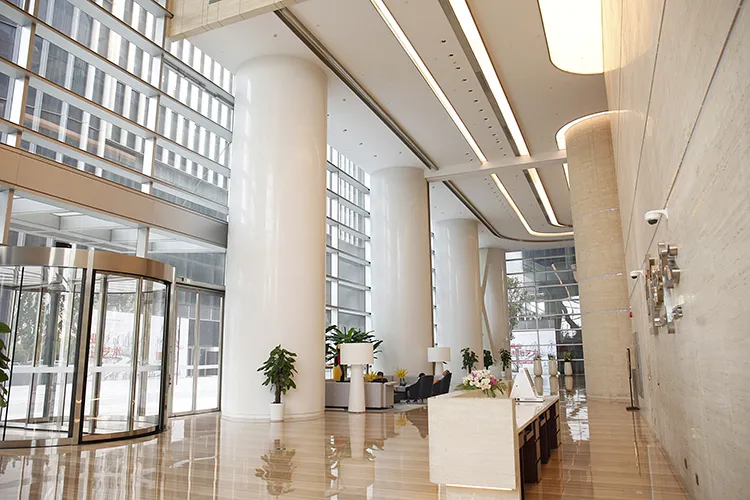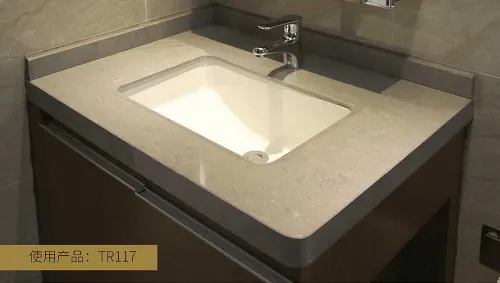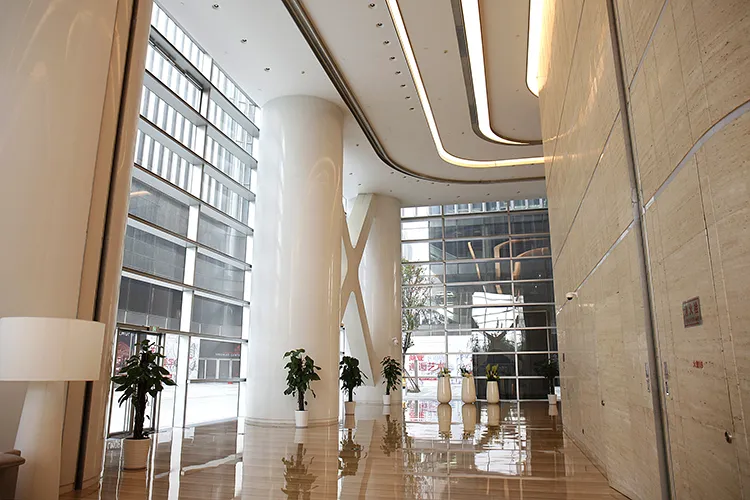In modern home decoration and commercial space design, the choice of countertop materials is crucial. As a new type of synthetic material, artificial stone has gradually been favored by consumers and designers for its beautiful and durable characteristics.
However, is engineered stone really suitable for countertops? This article will explore this issue in depth from multiple angles, comprehensively analyze the advantages and disadvantages of engineered stone and its performance in countertop applications, and help consumers make wise choices.

Definition and characteristics of engineered stone
Engineered stone is a synthetic material made by mixing natural stone powder with resin. According to the type of stone powder used, engineered stone can be divided into artificial marble, artificial granite and quartz stone.
Main ingredients of engineered stone:
● Natural stone powder: such as marble powder, granite powder and quartz powder.
● Resin: Mainly used to bond stone powder to give the material a certain toughness and plasticity.
● Pigments and additives: used to adjust color and performance, so that engineered stone has a variety of appearances and functions.
Manufacturing process of engineered stone:
Engineered stone is made by mixing stone powder with resin and pigment, curing and molding under high temperature and high pressure, and then polishing and surface treatment. Its manufacturing process determines the physical and chemical properties of artificial stone.

Advantages of engineered stone as countertops
Advantage 1: Beautiful and diverse
Engineered stone can imitate the appearance of natural stone or create unique designs by adjusting the composition and adding pigments. Its color and texture selection are rich and can meet the needs of various decoration styles.
Advantage 2: Consistency and stability
Because it is a synthetic material, the quality and appearance of artificial stone are relatively consistent, and there will be no obvious color difference and texture difference like natural stone. This consistency ensures the overall beauty and design effect of the countertop.
Advantage 3: High strength and durability
Engineered stone has high hardness and wear resistance, and can withstand the scratches, collisions and pressure in daily use. This allows the engineered stone countertop to remain in good condition after long-term use.
Advantage 4: Stain-resistant and easy to clean
The surface of engineered stone is dense, not easy to penetrate stains, and easy to clean daily. Dirt such as oil stains and sauces in the kitchen can be easily wiped clean to keep the countertop clean and tidy.
Advantage 5: Antibacterial properties
High-quality engineered stone has antibacterial properties, which can effectively inhibit the growth of bacteria and keep the countertops clean. This is especially important for places such as kitchens and bathrooms that need to maintain high hygiene standards.
Advantage 6: Environmentally friendly and sustainable
The manufacturing process of engineered stone can utilize waste stone powder, reduce resource waste, and has good environmental protection. Choosing high-quality engineered stone products can ensure that they do not contain harmful substances and are harmless to the human body.

Disadvantages of engineered stone as a countertop
Disadvantage 1: High temperature resistance
Although engineered stone has a certain high temperature resistance, it is still inferior to natural granite. Direct contact of high-temperature objects with engineered stone countertops may cause discoloration or damage. It is recommended to use protective measures such as insulation pads to extend the service life of the countertop.
Disadvantage 2: Chemical resistance
Some strong acid or strong alkaline chemicals may cause damage to the engineered stone countertop, causing the surface to lose gloss or show signs of corrosion. When using detergents, choose mild products and avoid using detergents containing strong acid or strong alkaline ingredients.
Disadvantage 3: Price Factor
High-quality engineered stone is expensive, especially branded products and custom-designed engineered stone countertops, which may be more expensive. Consumers need to consider budget and needs when choosing.

Practical application of engineered stone countertop
1. In the application of kitchen countertops, engineered stone performs well:
● Stain-resistant and easy to clean: engineered stone countertops are not easily penetrated by oil stains and dirt, easy to clean, and keep the kitchen tidy.
● High strength: Able to withstand daily kitchen operations such as cutting and smashing, and not easy to damage.
● Beautiful: A variety of color and texture options can be perfectly matched with various kitchen decoration styles.
2. Engineered stone is also ideal for bathroom countertops:
● Antibacterial properties: Effectively inhibit bacterial growth and maintain the hygiene of bathroom countertops.
● Waterproof performance: The surface is dense and not easy to penetrate water stains, preventing mold and deterioration in humid environments.
● Easy to clean: Common water stains and soap residues in the bathroom can be easily cleaned to keep the countertop smooth.
3. In the application of commercial and public places, artificial stone has high cost performance and practicality:
● High durability: It can withstand high frequency of use and traffic, and maintain the beauty and functionality of long-term use.
● Low maintenance cost: It is easy to clean and maintain, reducing the cost and time of daily maintenance.
● Diverse design: Different colors and textures can be customized according to the needs of commercial space to enhance the overall decorative effect.

